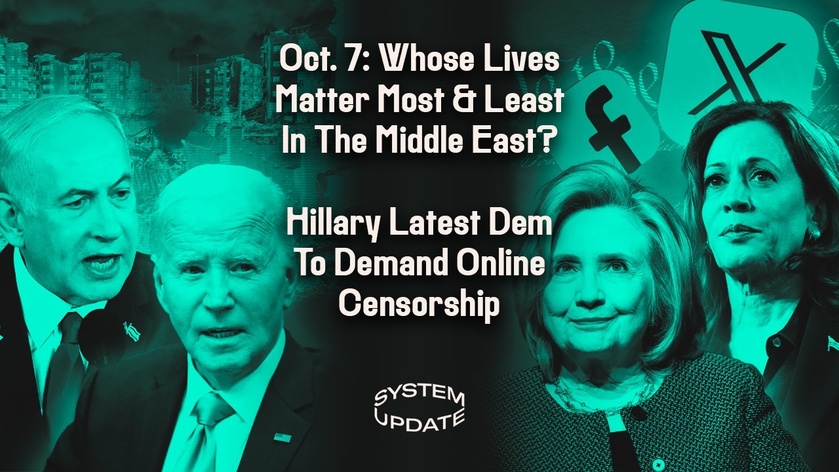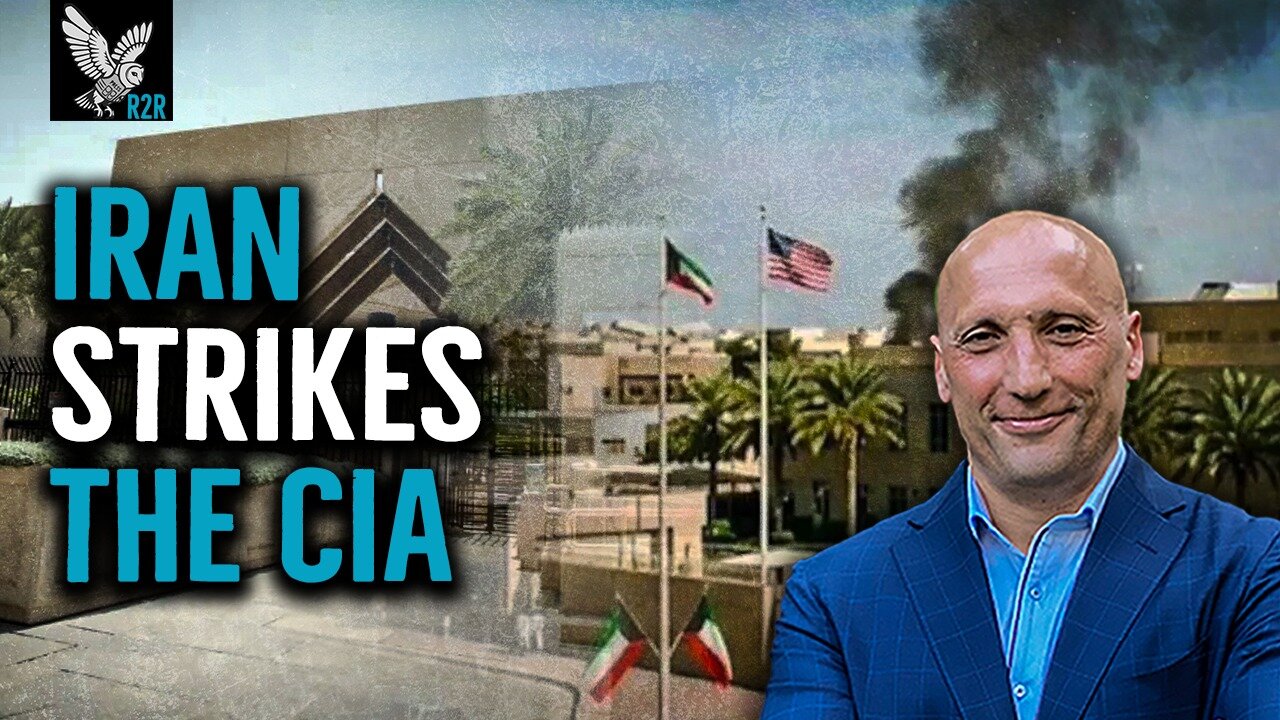Watch the full episode HERE
It's Monday, October 7.
Tonight: We commemorate one of the most solemn and sacred days in all of human history, the one year anniversary of the Hamas attack on Israel that killed a total of not 1400 people, as people like President Obama said today, but 1100 people, 730 of whom were actually civilians, many of which were killed by the IDF itself.
Just three weeks ago, we observed another profoundly solemn momentous tragedy in American history, namely the attacks on the United States on September 11, 2001. Those resulted in the death of 3000 Americans but the pageantry and theater marking today's remembrance not just in Israel but the U.S. as well, are far more intense and mandatory than observations of 9/11 have become since, as Benjamin Netanyahu and other leading U.S. supporters of Israel have told us, October 7 is far, far worse than September 11 was. October 7, this line of reasoning goes, is the equivalent of having 20 9/11 attacks, as Netanyahu explained, invoking a new math based on the relevant population sizes of the two countries to determine the magnitude of the tragedy. Even though the death count from October 7 was actually far lower than the 9/11 attack and did far, far less damage, we've been told repeatedly that it's actually far worse because it's 20 of them for Israel.
That reasoning would mean that if 1000 Americans die from a new virus and a thousand Israelis die from the same virus, we might regard the death total in Israel as 38 times larger and 38 times worse than the similar death total of Americans, which seems like an insidious way to start valuing human life. That's quite a selective way to measure lives and impact. Of course, what Netanyahu or American supporters in Israel really almost never think about or even consider is how many 9/11s has Gaza experienced since October 7 of last year. Using this mathematical formula to count Israeli lives as having more weight because their population size is less, it would mean that Gaza, in just the last year alone – to say nothing of all the Israeli bombing campaigns before that – using the most conservative death estimates, has suffered 21 October-7s in the last year and then vastly more than the weight obviously assigned to 9/11. Of course, you've never heard any one of the U.S. or the West more broadly describe the mass death and destruction of civilian infrastructure in Gaza in those terms, it would be the greatest heresy in the West to imply that the post-October 7 mass murder and destruction of Gaza by Israel is infinitely worse on every level than October 7 itself, just as the U.S.'s multiple violent and vengeful responses to 9/11 were far worse than that precipitating event. Just in the last two weeks alone, more Lebanese have died in the Israeli air bombing of Beirut than died on October 7, even though the Lebanese population is half the size of Israel's.
This ultimately is the point we really want to explore tonight on this first anniversary of October 7 and everything that came after. There is simply no explanation for the vast disparate, histrionic, and endless attention paid in the U.S. and the West more broadly to Israeli suffering as compared to the sparse, barely noted or chronicled, and rarely emotional reaction to the far, far greater destruction imposed by Israel. Just to underscore the point, a ballistic missile attack by Iran on Israel last week that targeted and hit only military installations and did not injure or kill a single Israeli received far more hysterical rage and indignation throughout the West than the yearlong ongoing Israeli flattening of residential buildings, hospitals, schools, refugee camps, and other public places, both in Gaza and in Lebanon. There is no way to explain this discrepancy in reaction or the utter indifference to the vast slaughter by Israel in the Middle East, except by embracing a view that the lives of one group of people in that region, Arabs and Muslims, have far, far less value than the lives of Israelis. That is what the prevailing Israeli mindset is almost explicitly and it is pervasive in the discourse and the policies of the West as well. More than any other singular dynamic that one has become most visible and I would argue most consequential in the last year, since October 7, and we want to take the time to explore that.
Then: Seemingly, daily, now, we report on one Democratic Party leader or Western elite after the next, making their demands for Internet censorship ever more explicit, urgent, and melodramatic. Over the weekend, one of the most vivid and unintentionally candid statements about the real reason for this increasingly desperate censorship regime by Western elites came from Hillary Clinton and it provides so much clarity about the actual mindset driving pro-censorship ruling class elites that we felt we would be remiss in not covering it. So that's what we're going to do.
For now, welcome to a new episode of System Update, starting right now.
























